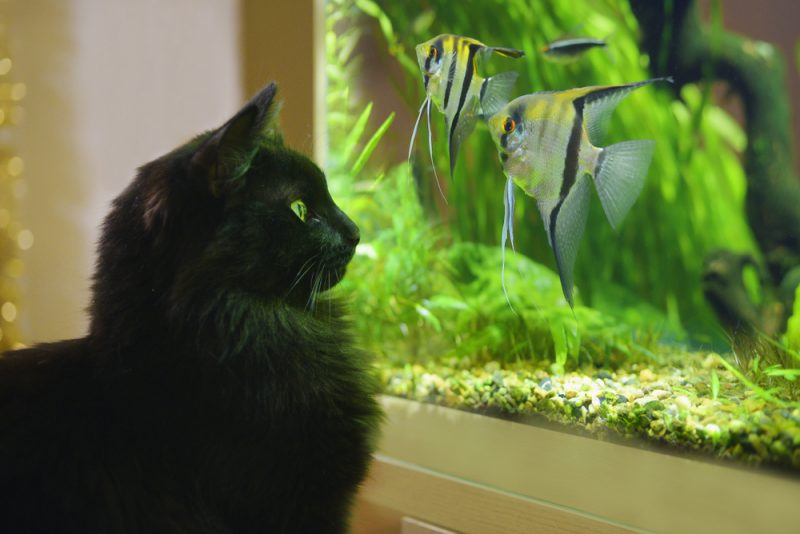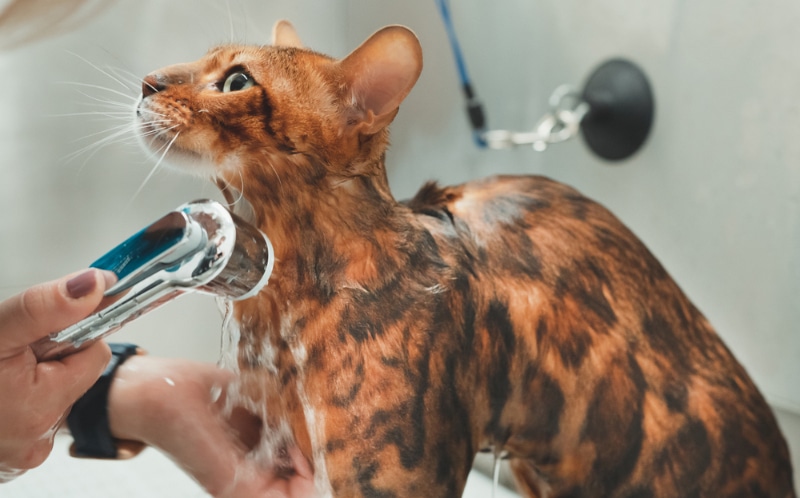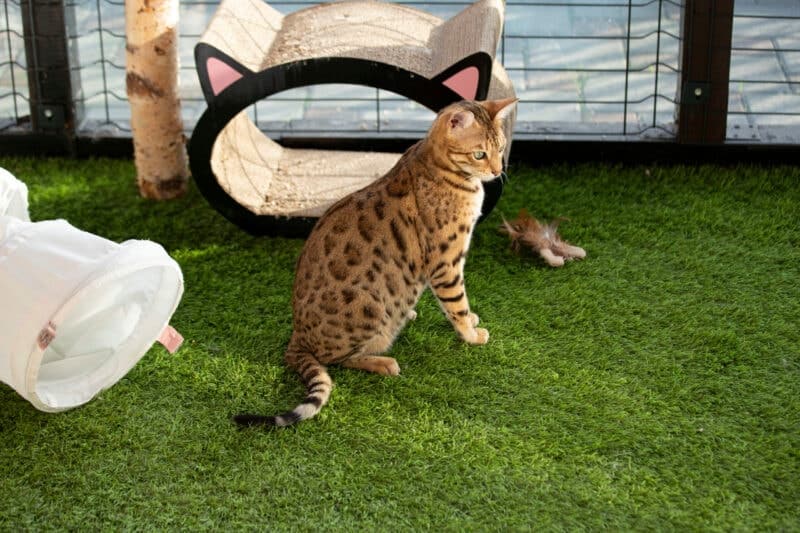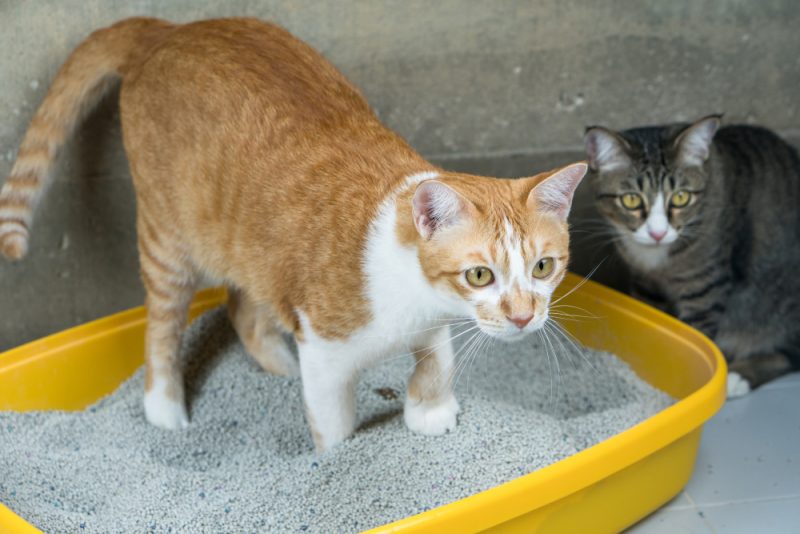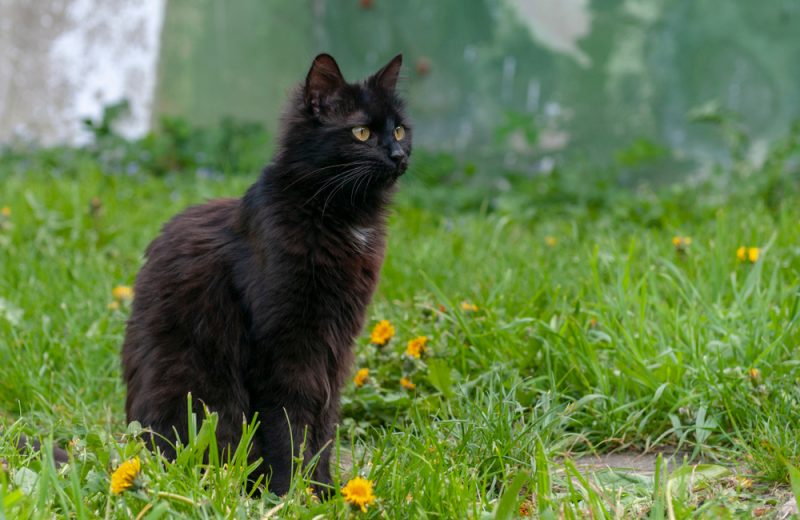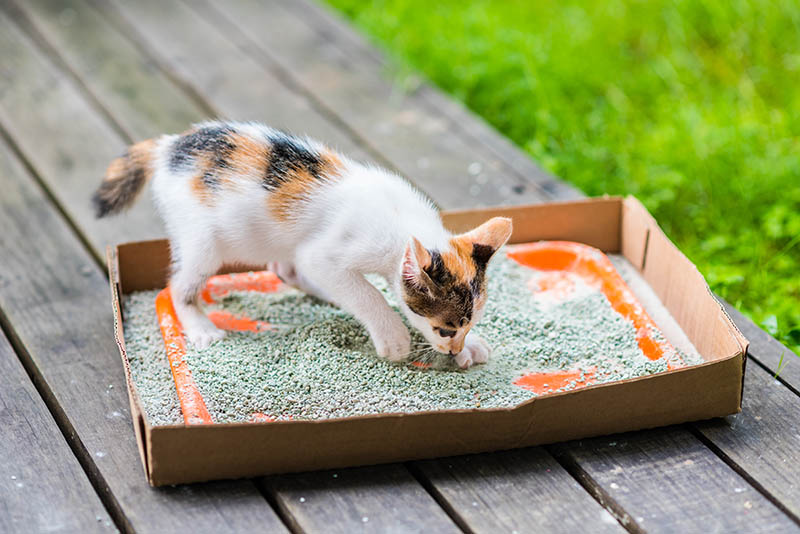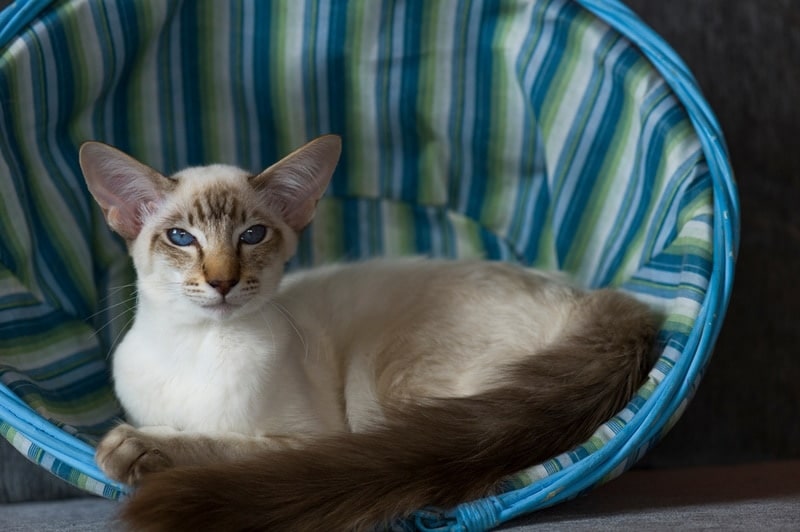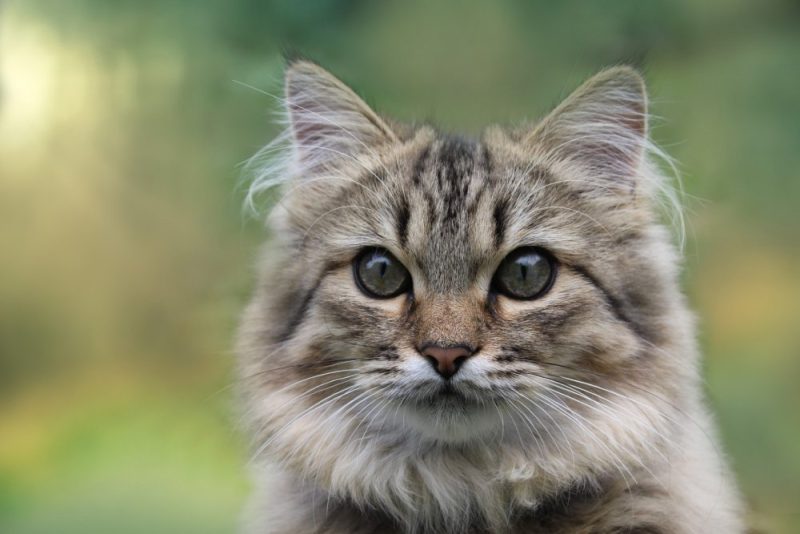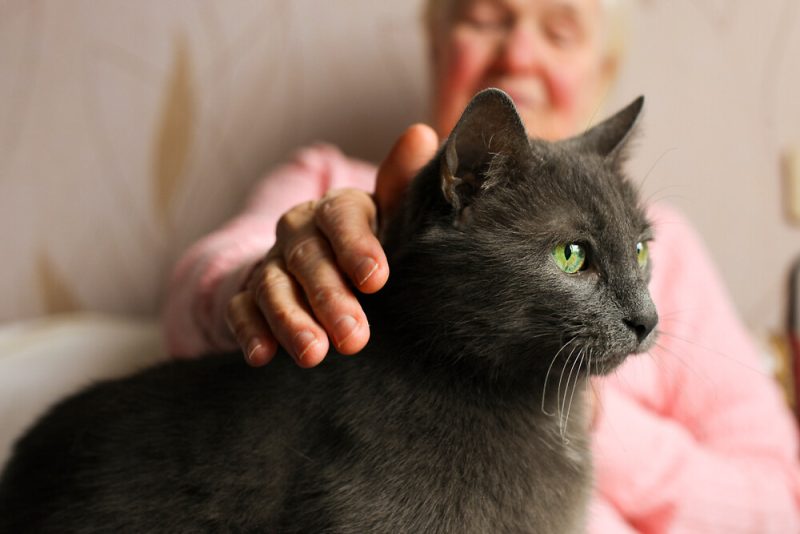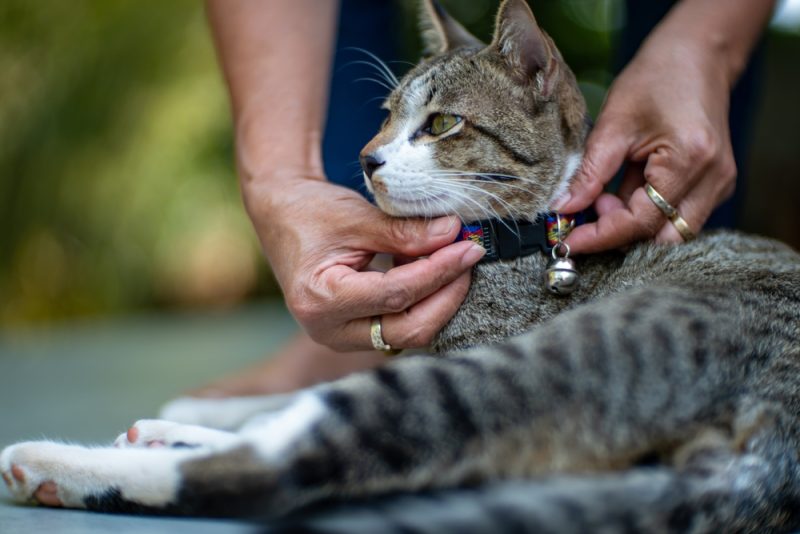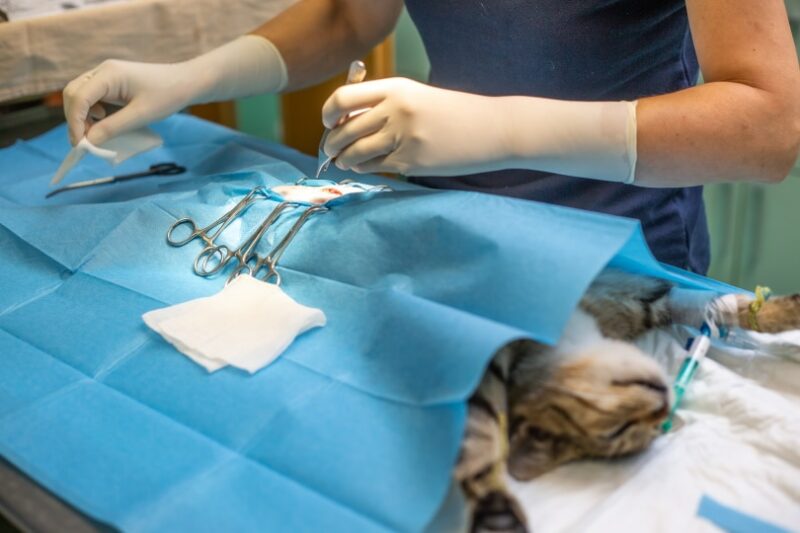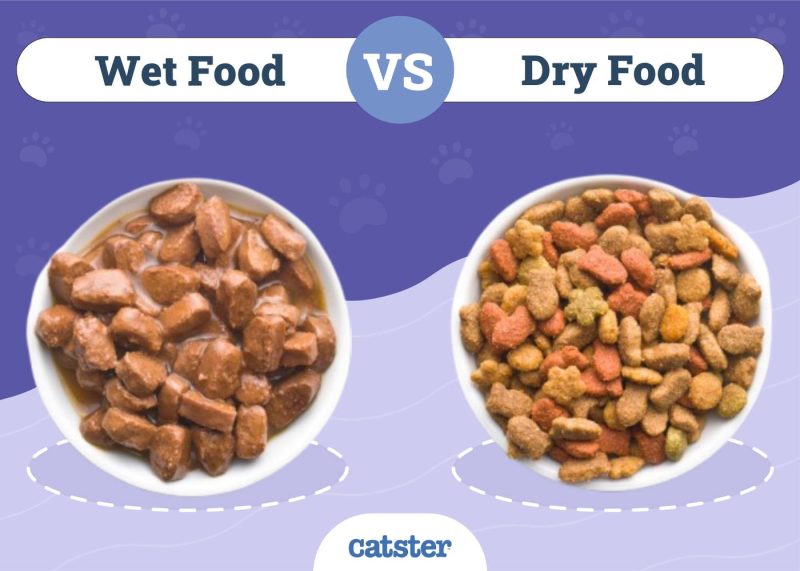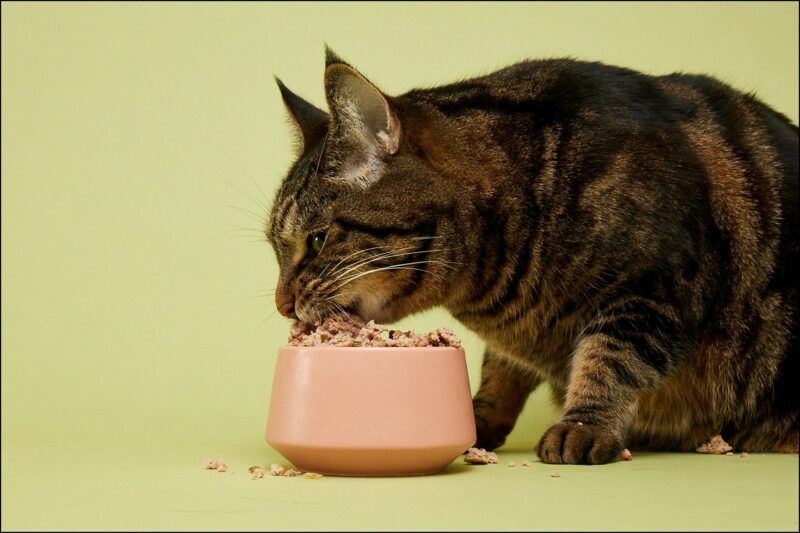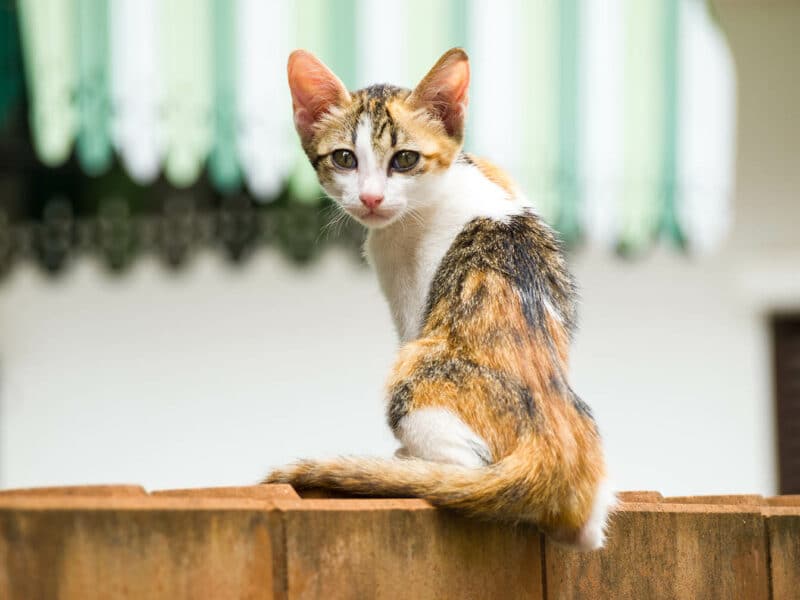There are few things more ingrained in our thoughts and beliefs about domestic cats than the connection of cats liking fish. It is an interesting animal for cats to take an interest in, though. After all, most cats don’t like water, so how often are they going to attempt to get to a fish?
There are actually a few reasons that cats may take an interest in fish, and when you really think about it, it makes a lot of sense for cats to enjoy them.

The 4 Reasons Why Cats Like Fish
1. Their Movement
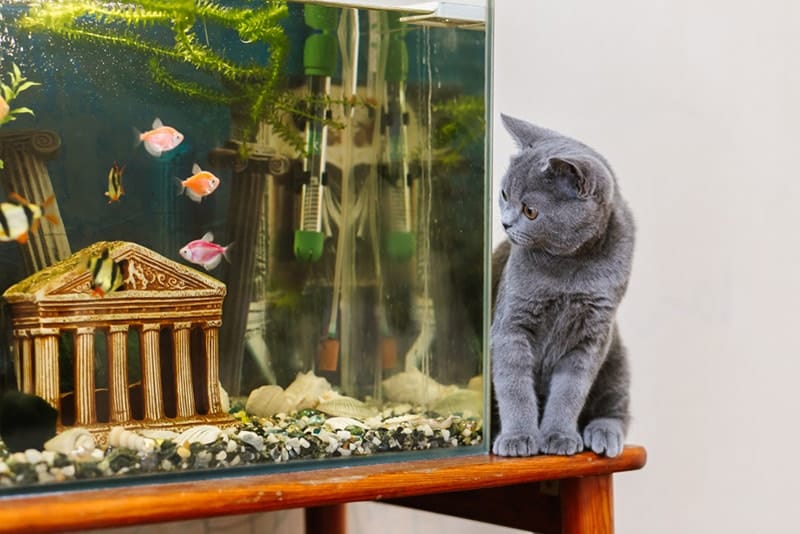
Whether in or out of the water, the movement patterns of fish are unusual and sometimes unpredictable, especially compared to land-dwelling animals. These movement patterns may pique the interest of your cat.
While they’re in the water, fish can make a fun and interesting show for cats to watch. The different shapes and sizes that fish show up in can also add to their level of interest.
If your cat comes across a fish that is out of the water, then they’re very likely to take an interest in the flopping and unpredictable movements of the fish. Both in and out of water, the movement of fish stimulates your cat’s natural hunting instincts.
2. The Smell
We all know that fish have a strong odor associated with them. For us, that smell can be unpleasant, but for cats, that odor may increase the level of interest in the fish. Cats have a sense of smell that is about 14 times stronger than that of humans, which means your cat can smell far more detail in the smell of a fish than you can1.
Cats are naturally curious and inquisitive, and the scent of a fish tank (and therefore, the fish) might pique their curiosity, and they might spend more time investigating the fish tank as a result.
3. The Sounds & Vibrations
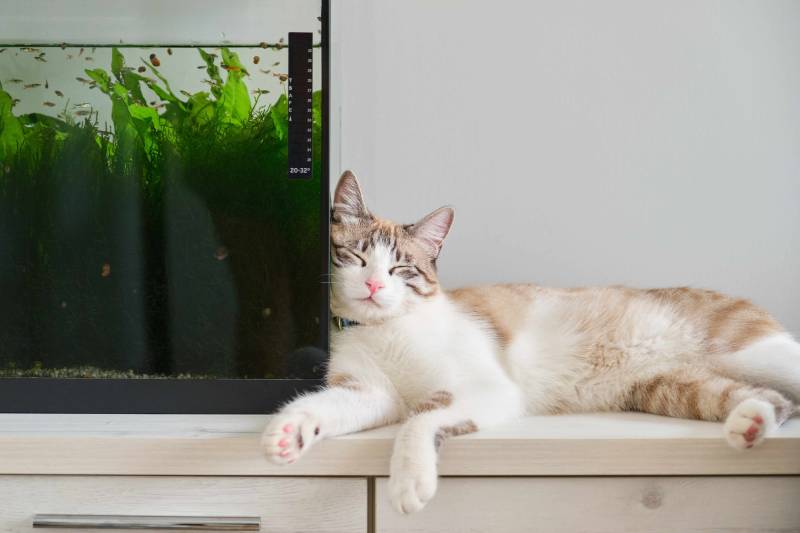
Many fish tanks have a certain degree of sound coming from the installed filters and air pumps. These devices often emit a constant, almost humming sound. This might be interesting for your cat to investigate, so you might find that your cat enjoys exploring the fish tank. A hang-on-back (HoB) filter that creates a waterfall will often produce enough sound to possibly draw interest from your cat.
Likewise, some devices (such as external canister filters and air pumps) tend to have a vibrating effect, which might also be interesting for a cat.
4. The Taste
Some cats like fish for exactly the same reason that many people do: the taste! The taste of fish can vary among species, though it can be quite divisive among people, and cats are no different.
Cats can be picky animals with very distinct and individual preferences, so not all cats will like the taste of fish. If you have a picky eater, then you likely have already figured this out about your cat. Some cats may snub a tasty fish treat, while others will love it.
When letting your cat eat fish, it’s important to make sure the fish is properly cooked, as many raw fish are high in thiaminase, an enzyme that can cause a deficiency of vitamin B1 (thiamine) in excess. Fish that you cook for your cat should be free of seasonings and bones.

The History of Feline Domestication
For hundreds of years, it was believed that cats were originally domesticated by the ancient Egyptians, around 3,600 years ago. However, once the early 2000s hit, archaeological and genetic advancements indicated that cats were likely domesticated in a different place and time than originally believed. Now, it’s believed that cats were domesticated around 10,000 years ago in ancient Mesopotamia, also known as The Fertile Crescent.
During this time, people would have been developing and using early agricultural practices, including growing and harvesting grains. The storage of food likely drew in vermin like mice and rats, so it was only a natural move for cats to move closer to the humans. While the cats would have had a quick and easy source of food with these small animals, the humans likely would have left the cats alone since their ratting services were beneficial.
It’s unclear if cats were domesticated in one area, though. It’s possible that there were different groups of humans who were all unintentionally domesticating cats parallel to each other.
Some of the early interactions that cats had with humans could explain the affinity that felines seem to have for fish. Some people believe that ancient Egyptians would use fish they caught from the Nile to lure in cats, keeping them happy and fed enough to encourage them to stick around and protect food stores.
As cats became domesticated, they would have become distributed in more places, including along coastlines, which also may have encouraged their taste for fish. In all likelihood, though, domestic cats simply developed a taste for fish because live fish supported their instinctual desire to hunt, not to mention all the nutrients they get from eating it.
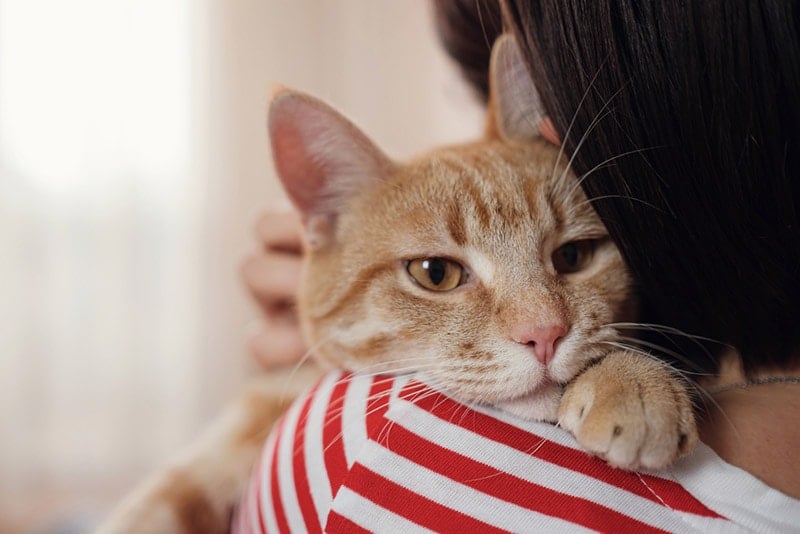

Conclusion
There are only a handful of reasons for domestic cats to like fish. These reasons all speak to the advanced senses that cats have, as well as their instinctual desire to hunt, especially for prey that moves peculiarly (such as a fish out of water).
The earliest humans who were involved in feline domestication may have had a hand in helping cats develop their taste for fish, but it’s more likely that this was just a natural progression for cats when exposed to a new form of prey.
Featured Image Credit: DMITRII STARTCEV, Shutterstock
